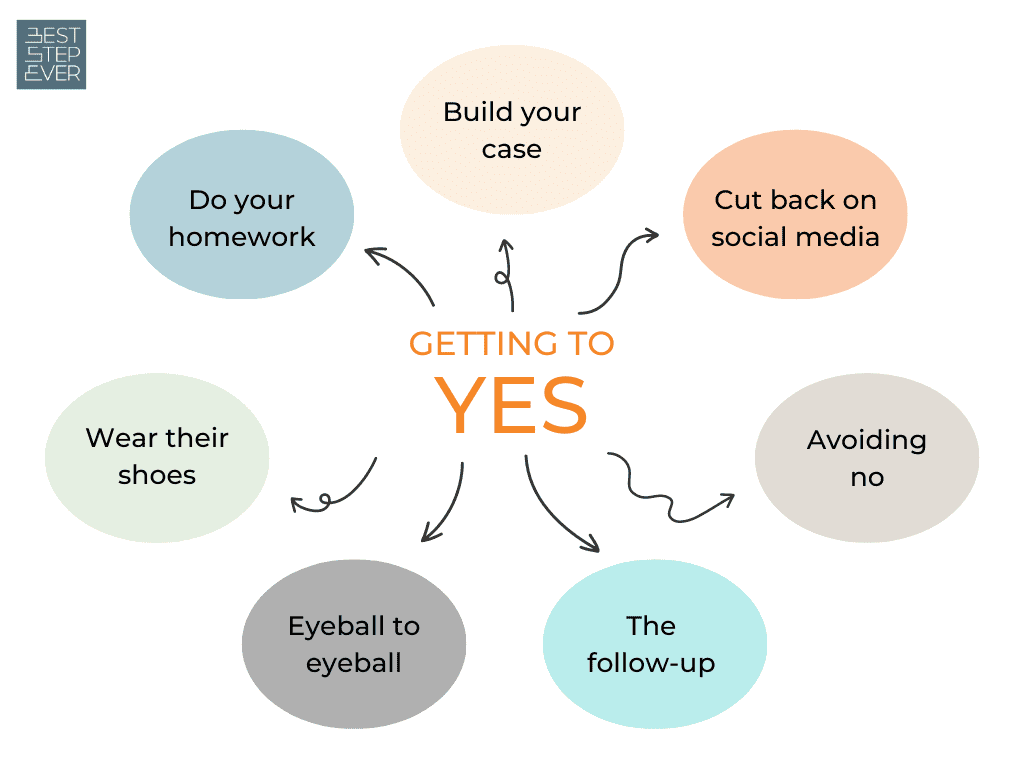NEED TO CONVINCE YOUR BOSS YOU NEED A HIGHER SALARY?
We all need to earn a lot more to make ends meet!! Perhaps you feel overworked and undervalued with no solution in sight? If you want to stay in your current job, regular annual salary increases aren’t going to do it for you. You’ll need an extra hike in pay to make a difference to your bank balance.
But just waltzing into your boss’s workspace and telling them you deserve more is not going to cut it. To be successful you need to get a lot more tactical.
Let’s get down to business.
1. Do your homework
There are three aspects to doing your homework.
- Let’s first look at the broader environment.
This is the part where you do some industry research and look at prevailing market rates for your job. If you can show that you’re underpaid in relation to similar jobs in the same or similar industries, this helps your argument to get better pay. Now you probably won’t have access to the data of compensation practice firms such as Aon Hewitt, Mercer and WilisTowersWatson etc. But good old Google can go some way in helping you find comparable jobs and other related data to help benchmark your compensation.
When looking for compensation data, it’s important to get an indication of total compensation package (the combined cost to company of your gross cash salary, benefits and bonuses) in order to compare apples to apples. Your employer will definitely have this in mind when looking at comparisons that you may bring to the table.
- Next let’s look at your company and their pay practices.
If your annual pay review happened in the past few months, it’s likely to be harder to get a positive response than when you are in the halfway mark between review cycles. Also be mindful of the company’s financial position. If they’re facing profitability issues your request will probably be met with “we can’t afford it”.
The Covid-19 pandemic affected many companies and has generally led to lower than expected salary adjustments in most countries and industry sectors.
- Finally let’s look at what you bring to the table.
- What are you doing that merits a pay adjustment? Do you have scarce or unique skills that make you hard to replace? Have you substantially grown your skills and added more value to the company recently? Are you taking on responsibilities at a higher level? How do others perceive your value?

2. What won't work
At this point it’s important to mention a concept called job loading. Horizontal job loading means taking on more work at the same level – and this is generally compensated by overtime or bonuses. It generally does not merit an adjustment to your base or fixed pay.
However vertical job loading .– where you are doing stuff above your pay grade as it were – is the strongest case you can bring to the table when motivating for a pay adjustment.
Threats of leaving don’t work well. Don’t do this unless you plan to follow up on it. You’ll be putting a negative label on yourself and don’t be surprised if the next downsizing happens to include you.
Neither does blackmail. If you’re in a position where you’re so valuable that your employer has to agree to your demands, use neutral language to keep the relationship positive. Here’s a different way to do it: “I really enjoy this company and my position. However it’s clear that I’m paid 20% below my market value, which I’ve recently become aware of due to being headhunted. I’d like to be in a position where I can ignore calls to consider employment elsewhere because I feel fairly remunerated in my current job and can get on with continuing to give the company my best efforts and loyalty”.
3. Build your case
Right, so you’ve done your homework, you have a good idea of how valuable you are and of market rates of pay. Make sure that you’ve built in a reality check somewhere. You want to create your case based on strong grounds and not on an overinflated opinion of yourself which only your mother supports.
Next it’s time to prepare your brag sheet – a list of all the things that make you worth more than you’re being paid at present. Previous performance reviews may also help to highlight your strong points.
Finally get clear about exactly what you’re asking for. Set a clear salary range so that there is no ambiguity about what you want.
Then prepare your script. Keep it brief but to the point. A useful format consists of:
- - a strong opening statement (what the topic is and why)
- - an outline of your value and contribution
- - a clearly defined request for a salary review.
4. Wear their shoes
Ready to have that meeting? Slow down, tiger! This is the part where you consider the other point of view.
Put yourself in your boss’s shoes. What constraints are they facing? How will your request land on them? Think about ways you can adjust your message and communication style to get the best possible response.
Also consider what is their wriggle room (the discretion they have to make salary decisions and spend their budget). Do they have any?
If not, then the purpose of your discussion shifts. Don’t bypass them. They’re a key influencer in this decision. In this scenario your role changes to get them on your side so that together you can take the conversation to the decision-makers.
5. Demonstrate empathy
Did you know that the key indicator of success in a salary negotiation is not in the preparation nor in the selection of a specific strategy? Instead, displaying sympathy for your negotiation partner and having a self-confident and self-conscious attitude are much more important. Oh, and if you’re a woman you’re less likely to be successful than your male counterpart. Click here if you want to read up more about this interesting bit of research spanning many years of studies.
6. Eyeball to eyeball
You’ll get the best chance of serious consideration for your salary adjustment request if you hold a face to face meeting. Shooting across an email or sending a voice note is not going to get the same level of attention.
So request a meeting, time it well, and have your say in a constructive and well thought out manner.
Be prepared for lots of questions and don’t take anything personally. Keep as objective and positive as possible throughout the discussion. That’s much more likely to lead to a positive response.
7. Avoiding "No" (dealing with objections)
The majority of managers are not in a position to give an immediate “yes” to any salary request. They need to consider the bigger picture and probably include other stakeholders too. This is why you should not hold expectations that one conversation is all it takes. In reality it’s mostly a slow process.
What you don’t want, is to get an immediate rejection. Because then it’s game over, unless you have other tricks up your sleeve. You want to stay at the negotiating table. For this reason it’s a good idea to end with a statement along the following lines: “I realise that I’ve given you a lot of information and that this is generally not a decision that’s made instantly. I’d like to suggest that you take the time to think about everything I’ve said and that we have a follow-up meeting to discuss it further”.
If your manager immediately highlights their inability or unwillingness to raise your salary, shift the negotiation grounds. Ask for them to consider increasing other elements of your pay if a base pay increase is out of the question – for example increasing your other benefits, or adding a performance-based bonus etc. There’s more than one way to boost your income.
For further inspiration have a look at these 15 rules for negotiating a salary offer.
8. The follow-up to get better pay
Once you’ve had your meeting/s, and you’ve had your answer, be sure to follow up. This takes several forms.
If you got an increase, even if it was less than you expected, express gratitude and appreciation. You won! And you established an important principle – that you can negotiate your pay upwards if you have the right reasons.
If your request was denied, ask for the reasons – at the very least you are owed this. Then consider how you can overcome these reasons in future.
Don’t quit in a fit of pique unless you have another job lined up. At any rate, it’s never a good idea to burn your bridges. If it’s your time to exit for greener pastures, be gracious about it.
Finally, if you were not successful take the long view and stay motivated. Weigh up the probability of increasing your pay at your current company. Now chart a path forward to get to where you want to go – either in the same company or if needs be in a different company.
STEPS IN NEGOTIATING HIGHER PAY



